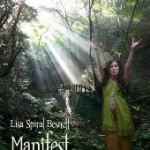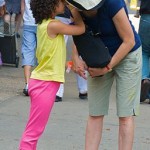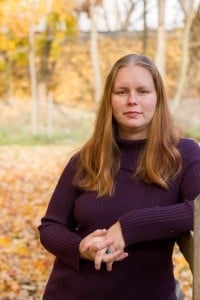Recently I found myself totally absorbed by Roanna Rosewood’s birth memoir: Cut, Stapled, and Mended. In an overlap with my interests that I didn’t anticipate, I  discovered that in many ways Rosewood’s book is about a journey to the sacred feminine within herself. This thread of her discovery of the larger forces of what it means to be female that runs throughout the book and I was especially interested by several mentions of a sense of being inhabited by the Divine, the Sacred Feminine. Writing about the blessingway ceremony her mother and some friends had for her, Roanna also wonders, “After the initiation of birth, will I feel comfortable in the world of women?” (p. 33).
discovered that in many ways Rosewood’s book is about a journey to the sacred feminine within herself. This thread of her discovery of the larger forces of what it means to be female that runs throughout the book and I was especially interested by several mentions of a sense of being inhabited by the Divine, the Sacred Feminine. Writing about the blessingway ceremony her mother and some friends had for her, Roanna also wonders, “After the initiation of birth, will I feel comfortable in the world of women?” (p. 33).
During the birth of her last child, she feels the might of creation pass through her and writes of the sensation of being inhabited by the Divine:
“Only then does the Divine come, taking my body as her own. I am no longer alone. There is no fear…I experience completeness. I find religion. Infinity is tangible. Generations of children, their dreams, passions, defeats and glories—they all pass through me, converging here, between my thighs…” (p. 146-147).
She touches on this theme again as she concludes her beautifully written book:
“I understand why we fear birth and seek to make it a sterile and planned event. But doing so denies us our greatest opportunity: partnership with the divine. It’s not possible to numb oneself to fear, pain, and death without also numbing ourselves to courage, pleasure, and life” (p. 160).
And, also with wistfulness:
Deep inside, I feel the screams of birth echoing off the sides of my skull. Softer and softer they fade, becoming a faint whisper, then disappearing completely.
I open my mouth. ‘Please,’ I whisper-scream-beg-cry, ‘please come back.’
She does not.
I am, once again, mortal. (p. 155)
She also writes of feeling betrayed by the goddess through the sheer physical effort and even “brutality” of the birth experience:
In my wildest imaginings, I would never have believed that the goddess would betray me, would violate her own daughter in this way.
It must be in some sort of cosmic joke that by achieving my greatest dream, by discovering the magnificence of birth, I’m confronted by my own irrelevance. Humbled, I know I have accomplished nothing. What happened, happened through me, in spite of me, and with complete disregard for my existence (p. 151).
I wonder about the readers of Pagan Families—do you connect with these experiences? Have you felt the Divine inhabit you during birth? Have you felt violated by the goddess? Where is She in birth for you?
—
Disclosure: I received a complimentary copy of this book for review purposes.
Modified from posts first published on Talk Birth.
















